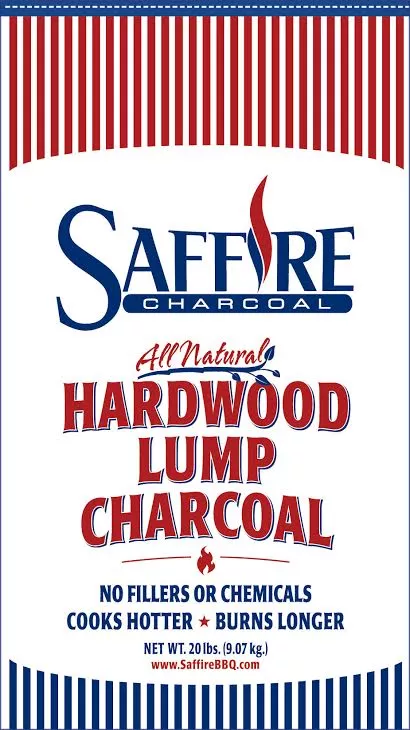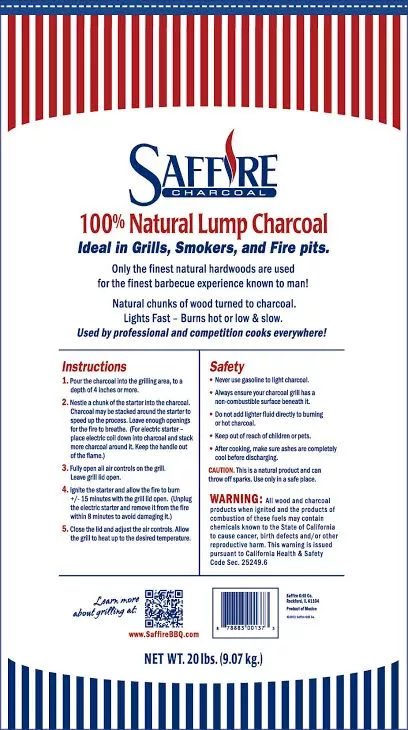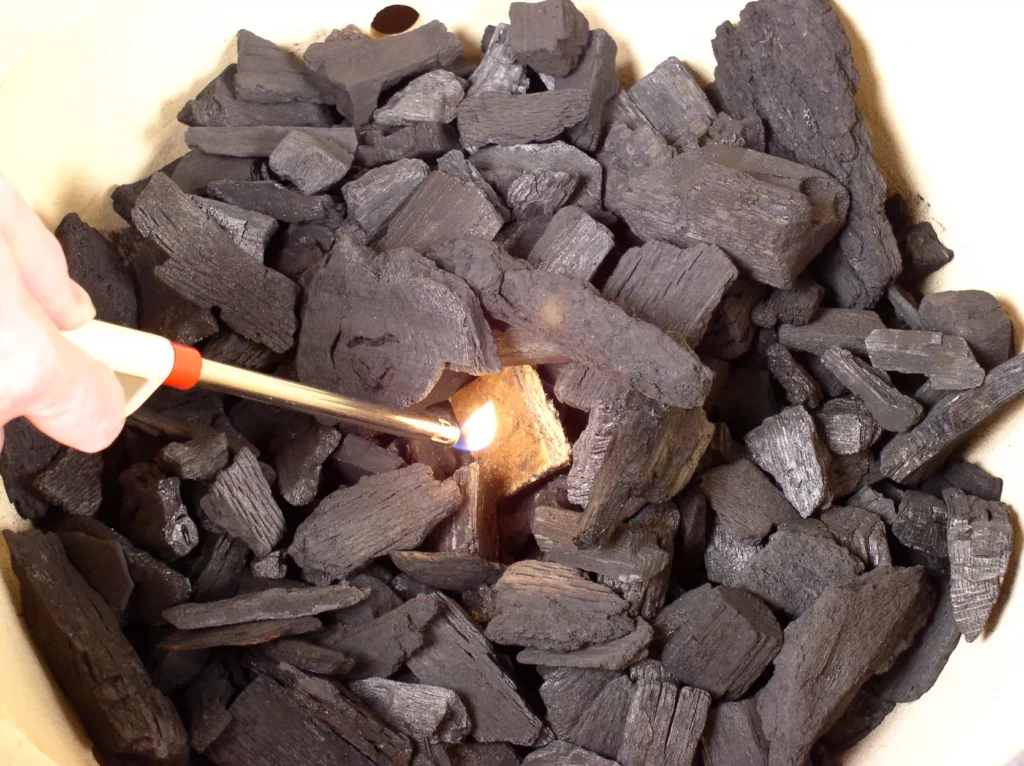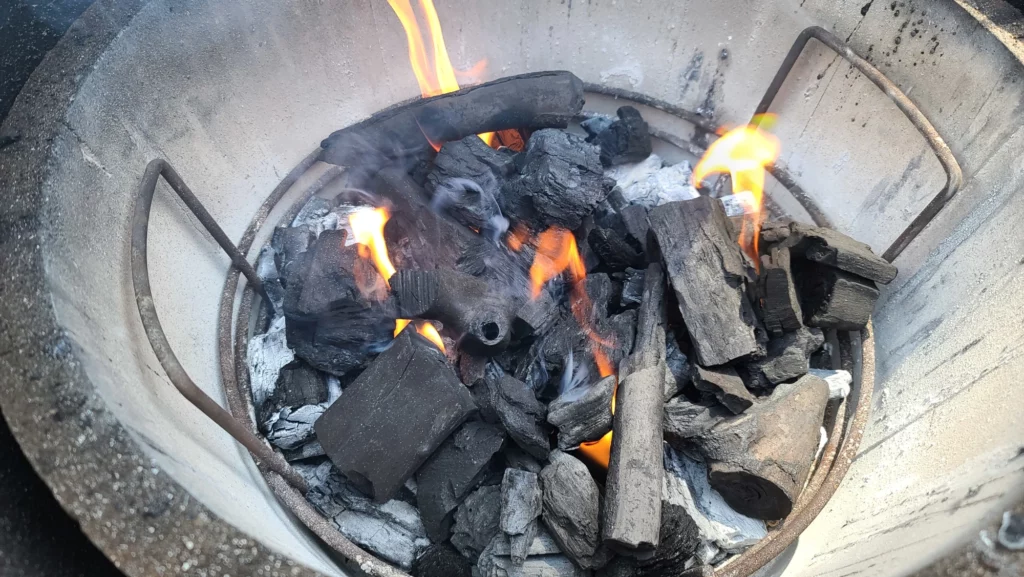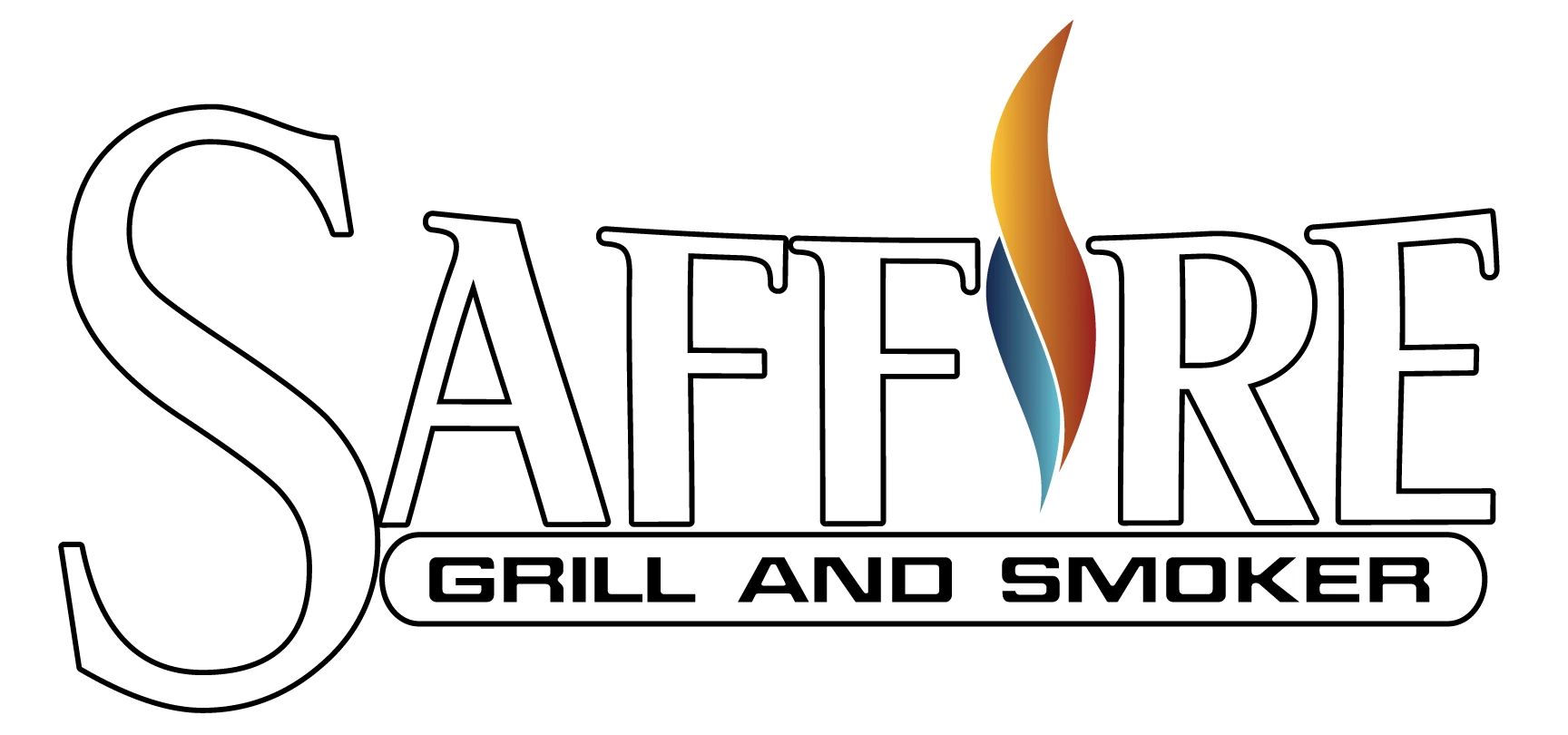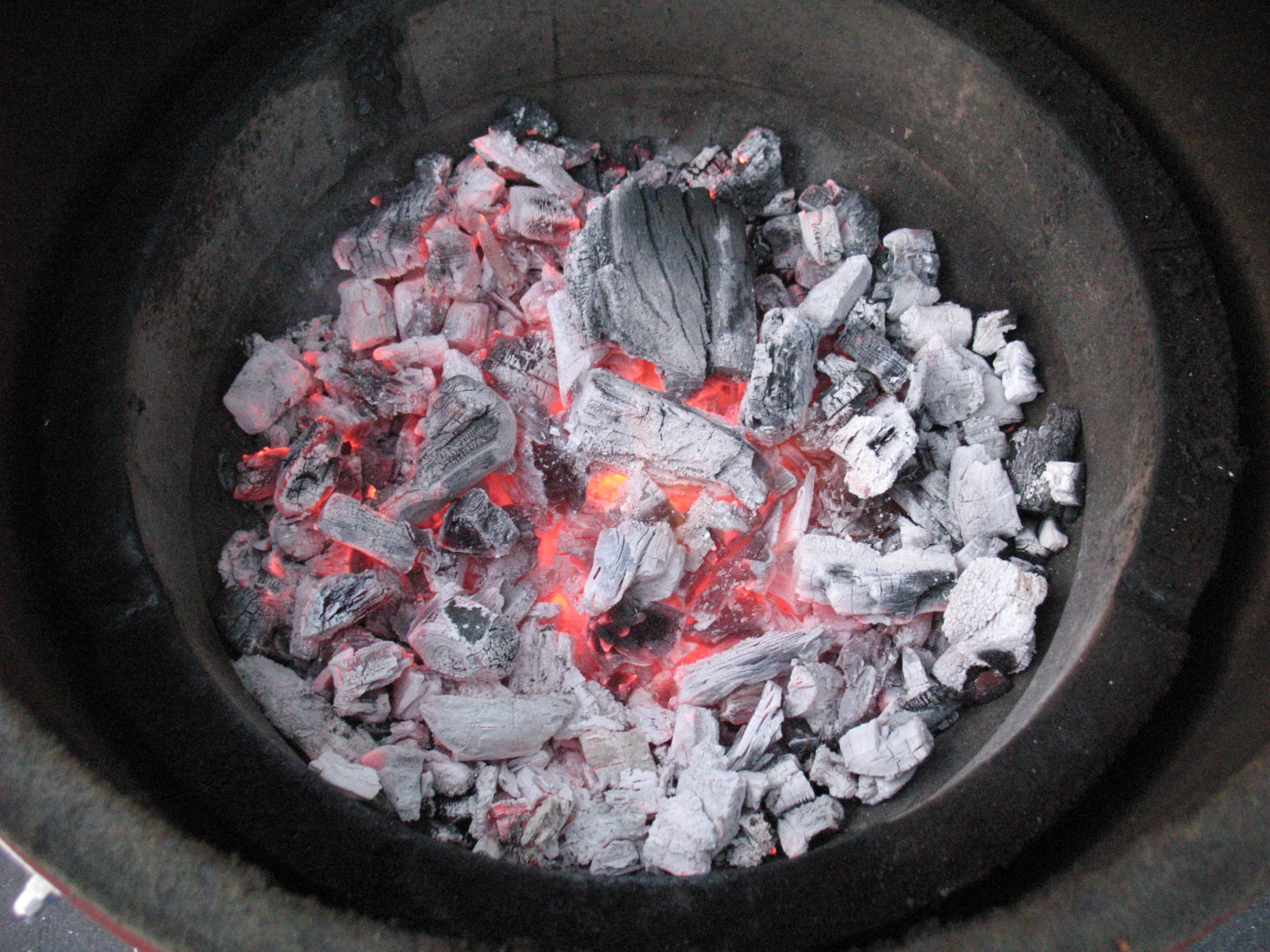
History of Charcoal
Charcoal, made from wood, is one of the oldest fuels made by man. For thousands of years it has been prepared underground in earthen kilns but nowadays is made commercially in large ovens or kilns.
The wood is burned or heated and then deprived of oxygen. This removes the elements that are unwanted but preserves the carbon in the wood. The unwanted elements include hydrogen, methane and water (which hinders wood from burning well). The process also removes tars, the icky, sticky smoke that can leave creosote residue and carcinogens. When the whole process is complete it will have removed 75% of the original content of the wood.
Now it can be used to produce hot, virtually smokeless fires that are long-lasting.
A similar form of “activated” charcoal is actually used to make filters for air, drinking-water, aquariums and more.
Over the years charcoal was used for things like smelting copper and iron, blacksmithing and heating. Its uses for cooking became more prominent when Henry Ford created the first charcoal briquettes around 1920 by using up the scrap wood and sawdust from his automobile factory. They promoted a lifestyle as they encouraged the use of their automobiles for picnics and selling their briquettes and barbecue grills through the Ford dealerships.
Today’s typical briquettes use some charcoal but also have additives and binders to hold it together along with fillers like coal. Most briquettes sold today contain up to 70% coal! Coal is a fossil fuel out of the ground. Good for heating and blacksmithing but not the pleasing aroma of hardwood charcoal. The byproducts of coal burning will produce sulfuric acid in damp environments. No wonder your grill grates are rusting!
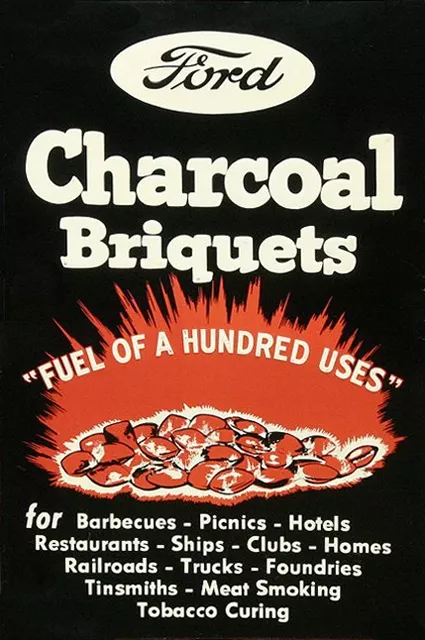
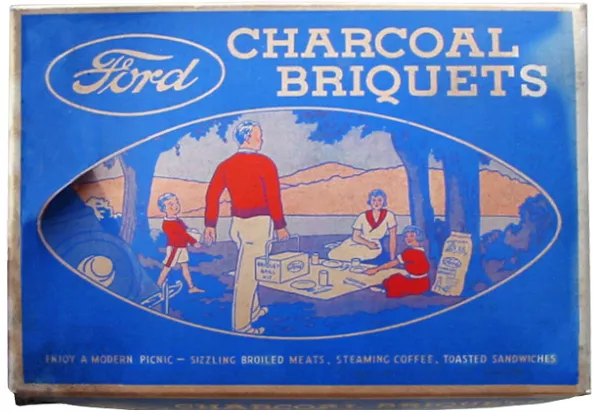
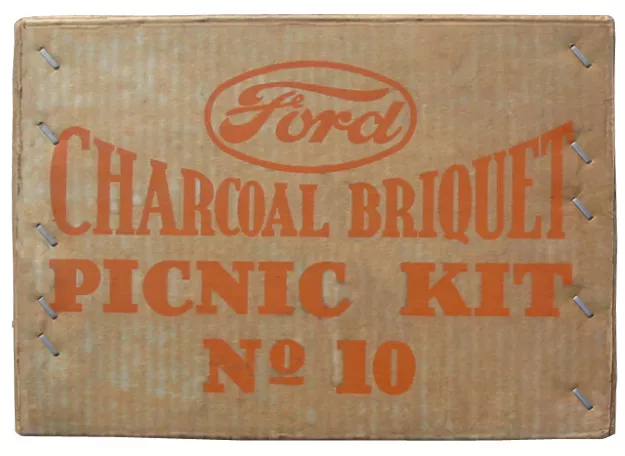
The Finest in the Pit!
Saffire’s 100% natural hardwood lump charcoal is not compromised of any additives like coal, etc. It also contains more dense hardwoods than others. With Mesquite, Oak and Hickory it is not only great for flavor but will burn longer than a similar volume of most other brands. That’s especially good when roasting or slow smoking for many hours.
Because the natural chunks (lumps) of wood are not pressed into dense briquettes they light much easier with just a small fire-starter or electric fire-starter. Start time is only 10 minutes for low temperature smoking and 15 to 20 minutes for High temperature grilling.
So grab some all natural wood charcoal and cook some barbecue on your Saffire that is unnaturally good! Naturally!
